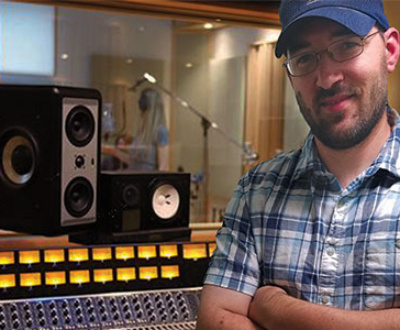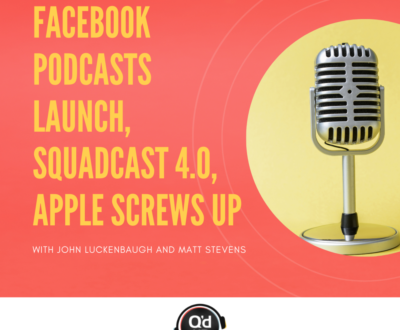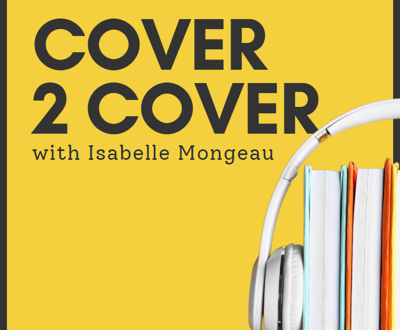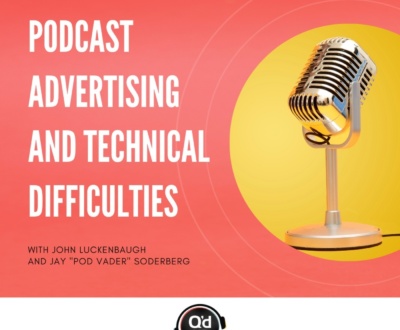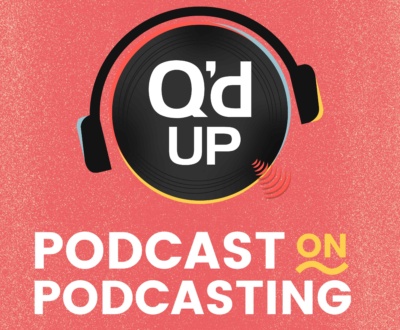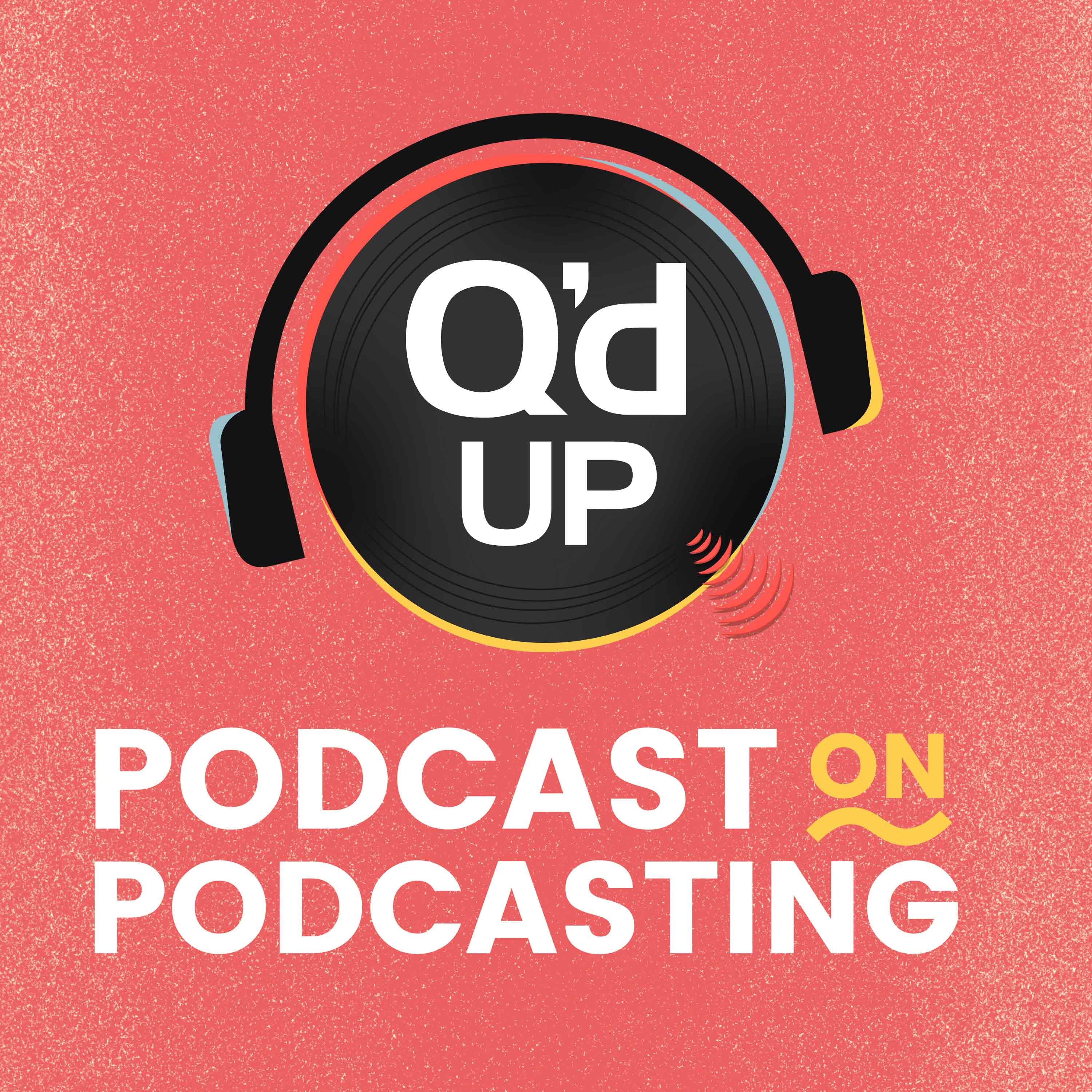
From independents podcasters looking to quit their day jobs to do this full-time to brands wanting to offset their costs, podcast monetization is seemingly on everyone’s mind right now. But is it actually right for everyone and where should you even start?
That’s what we’ll be discussing on this week’s episode of the Q’d Up Podcast on Podcasting. Join host Matthew Stevens as he discusses when you should begin thinking of podcast monetization and details a few of the best options available for both large and small podcasts alike.
If you’ve been looking to make a few bucks from your podcast, this is the episode to listen to.
Podcast Monetization: Your Guide To Making Money From Your Podcast
Follow Q’d Up:
Listen to the Q’d Up Podcast on Podcasting:
Episode transcript:
As more money funnels into podcasting, more and more podcasters are thinking a lot about how to monetize their creations. From independents looking to quit their day jobs to do their podcast full time to brands looking to offset their costs, podcast monetization is seemingly on everyone’s mind.
But is it actually right for everyone? Where should you even start? Are podcast ads the only way to get paid for podcasting? The answers to all of these questions can be complicated but on today’s episode of the Q’d Up Podcast on Podcasting, I’m going to discuss when you should begin to think about monetizing your podcast and we’ll go through some of the best options available to everyone.
Come on in and let’s get paid on this episode of the Q’d Up Podcast on Podcasting.
I totally get it. You spend so much time making your podcast perfect and you’ve finally managed to build up an audience worth monetizing. But that doesn’t necessarily mean you should.
First and foremost, we need to acknowledge that not every podcast will have what it takes. Whether it’s a lack of audience, the focus of your podcast being too controversial, or what type of podcast you have in the first place; podcast monetization will either be too difficult to pull off or should be avoided altogether for other reasons.
Branded podcasts, for instance, should avoid the traditional models of monetization in my opinion. These types of podcasts rely on a professional and direct connection to their audience, and an ad right in the middle can disturb that. Branded podcasts should also be monetizing their audience in different ways, usually by increasing brand awareness, brand loyalty, and direct calls to action to go buy a product or service.
The positive here is that most podcasts can be monetized. So, let’s start off with the most obvious form of podcast monetization: podcast ads
I’m hoping you’ve listened to other podcasts prior to this one but if you haven’t, ads are commonplace in podcasting. According to a BBC study, podcast ads saw 47% more engagement than radio ads and 27% more than those run on TV. Better yet, 78% of podcast listeners reported not being bothered by ads on their favorite shows. That should get you excited about the prospect of putting ads on your podcast and reaping the rewards.
But hold up, it’s definitely not that simple.
Most podcasters will want a network to handle the heavy lifting here. They have the salespeople and experience to reliably fill your spots with well-paying ads. Relying on a network also means it can be incredibly easy and efficient to monetize your podcast in this way.
Unfortunately, most networks won’t even look at you unless you have 10,000 downloads a month on average. Self-serve options don’t often pay very well and they can be sporadic, at best, leaving you with open ad spots you won’t fill. And the prospect of finding and soliciting sponsorships by yourself is likely giving you a huge headache already.
If you’ve got the audience for it or the time and ability to go get your own deals, podcast ads can be an easy way to put money in your bank account. But for independent podcasters that don’t hit that audience threshold, it can be far more frustrating than it’s worth. Luckily for you, there are even better options coming up next…
The rise of YouTube as a major platform spawned a creator economy to follow. Subscription and membership sites like Patreon, Buy Me A Coffee, and Memberful popped up, allowing creators to tap their audience directly for support.
It might be easy to dismiss this type of podcast monetization as “only a few bucks” but creators have leveraged that belief into some serious money. In total, creators on Patreon make more than $1 billion a year! Among the top performers are creators making in excess of $200,000 a month.
After decades of having to buy a cable package that included a ton of channels you were never going to watch, people finally got fed up. We’ve seen that in the rise of streaming services and it’s echoed on these membership platforms as well. Basically, people want to pay for the entertainment they enjoy and skip on the stuff they don’t.
What that means for you is that your loyal listeners are most likely ready and willing to toss a few bucks your way every month for the enjoyment you give them. And if you build up a group of subscribers, you’ll have a relatively stable income as a result.
But before you get too excited and sign up, there are a few downsides you need to know about.
For one, you’re tying yourself directly to a company. While every platform will preach about having your best interest at heart, we’ve all seen how well that works in reality. Platforms like Patreon are no strangers to controversial decisions and policies that result in serious ramifications for creators.
One such policy has been the implementation of fees, especially on smaller-dollar memberships. Not everyone is going to have $20 a month to support you. A lot of your members will be at the $1-5 range but with both platform fees on top of payment processing fees, a large amount of that money can be gone before it ever hits your bank account. That can be discouraging at the least and even a slight increase in fees can practically wipe out those small-dollar members entirely.
You could also be signing up for even more work this way. Because so many people are on these platforms, members have increasingly desired rewards for their money. For some creators, it means putting out the episode earlier and providing bonus content for members only. You’ll also see physical rewards as well with stickers and t-shirts a norm for bigger-money members.
You’ll need to spend time setting up and supporting this podcast monetization method to get the best results. It’ll also likely take some time to grow your membership to a comfortable place, regardless of how many listeners you have right now. If you’ve got the time to do it right and can be patient, memberships can be a great way to monetize your content.
Podcast ads aren’t all created equal. We’ve already talked about traditional ads where someone pays you a CPM — basically a price for every 1,000 listeners — but there’s another type of ad that might actually be better for smaller podcasts.
Affiliate marketing — You know, the ads for Skillshare, Blue Apron, or KiwiCo.
While not all affiliate ads offer the same terms, many give a flat rate per conversion or offer a percentage of what is purchased. That can be great if your listeners have a lot of disposable income and you can convert them into buyers. And with so many affiliate programs out there, you’ll undoubtedly be able to find a product or service that matches up perfectly with your niche.
Unfortunately, that can also be the biggest problem with affiliate programs. You need to find ones that make sense for your audience and you have to carefully check those terms. You’ll quickly lose favor with your listeners if you promote a product or service that isn’t great, meaning you really have to do your homework first. And with many affiliate programs only paying for the initial signup, you effectively have to keep feeding that beast to reliably make money every month.
If you’re looking to get a slice of the pie every time your listeners buy something, you need to create in-house options. The best way of doing that is with merchandise.
A favorite of independent creators everywhere, large companies have even begun to realize the potential of merchandise. Look at some of the larger creators on Youtube and you’ll see a lot of unique merch sold directly, including a growing amount of completely custom products. While it’s difficult to accurately estimate how much money creators are generating from their merch, LinusTechTips — a larger YouTuber — was transparent about where his revenue comes from, putting merch at roughly 15%. In a video detailing this exact thing, Linus noted that merch is a rapidly growing slice of the pie and is actually more than half of what is earned from in-content sponsors and YouTube AdSense. Keep in mind, LinusMediaGroup, the company behind the YouTuber, is decently-sized with roughly 65 employees.
However, it isn’t necessarily cheap to create your own merchandise. Even if you use standard apparel you can buy from distributors, you still need to create designs that will sell, get the apparel printed or embroidered, and then create a website to sell it all. You’ll also have to store it somewhere that is dry and handle all the logistics of getting the merch into your customers’ hands.
That’s why a lot of independent creators rely on third-party companies that either print-on-demand as orders come in or they’ll hold all your merchandise, handling all the distribution for you. Both can be good options for creators that don’t have a ton of money to get started, want to focus more on other areas, or just don’t want to handle all the shipping and customer support needed, but it comes with a smaller cut of the revenue.
If you want to sell other products other than standard apparel, there are companies that drop ship from their warehouses directly to your customers as though they were you. Your customer never knows the difference, you don’t have to come out of pocket for anything or handle the shipping and you get a slice of every purchase. This can be a great option for those creators looking to sell something related to their podcast topic — like gardening tools for a podcast about gardening.
If you do go with a third-party, just be careful about quality — both in the merch and the company you’re dealing with. Remember, your listeners believe they’re buying directly from you and you’ll be the person that most feels the impact if your merch doesn’t match the standards expected. What sounds sweet now can be a real headache if your drop shipping company is sending inferior products and you can’t confidently correct the issue with them.
Next up is another option that has exploded in popularity recently, especially amongst creators with self-help content. Books, courses, and public speaking engagements can be big money if you have a loyal audience and enough content to make something worth buying.
Entrepreneurs have utilized these methods most effectively, creating courses that people can buy to improve some aspect of themselves. Places like MasterClass and SkillShare have become the names you’re likely to be most familiar with but large creators have been launching their own independent options directly on their websites.
Prior to the ubiquity of online courses were books. They can still be a very effective way to monetize your audience, especially since self-publishing has become such a popular option but their popularity has faded quite a bit. Typically now, you’ll see short e-books given away in order to capture your contact information where they can then pepper you with more lucrative options.
Thanks to both COVID and the ability to pre-record high-quality content, public speaking events aren’t quite as big as they were in the past. However, within certain niches, public speaking engagements are still big money, especially if you have an audience you can drive to the event. While typical public speaking events aren’t as popular anymore, live shows are an interesting option for creators with a localized audience. These can simply be a live recording people can buy tickets to, in order to see the podcast created in-person or they can be more grand shows that incorporate other creators or interactive elements.
Finally, we get to branded podcasts and how businesses should view monetization of their content. While all of these previous options are likely tempting, if you’re a business with your own podcast, you should think more about your actual goals and the value you want to get out of your podcast.
We’ve touched on the importance of goals for your podcast on previous episodes but it’s even more important here. If you’re a business, you already have a way to make money and should focus your attention on doing that as best as you possibly can. What your podcast can do incredibly well is increase your brand awareness, your brand loyalty, and can even drive listeners to purchase your service or product directly.
That all works because your podcast should have engaging content that’s useful to your listener. That, in turn, builds trust and improves the authority you have over a topic, meaning what you promote carries a lot of weight. The last thing you should want to do is abuse that trust and have your listeners think of you as little more than a shill. That’s why we here at Q’d Up Audio tell our branded podcast clients to skip doing ads, especially for other products and services. Instead, focus on attracting and keeping the right listeners to your podcast and then focus on having them hit your real goals — things like informing people about you and your products/services, driving clicks to your website, creating brand ambassadors to spread your company further.
There you have it . . . a few of the most effective ways to monetize your podcast. From large podcasts with 10s of thousands of downloads every month and branded podcasts to the independent podcaster that just finally cracked their first listener milestone, you can finally make some money from all the hard work you’ve been putting in.
Now go out there, create something amazing that’s worth monetizing.
Request a free quote
We offer high-quality production, distribution, and marketing for podcasts and audiobooks. Contact us today for a free, no obligation quote

